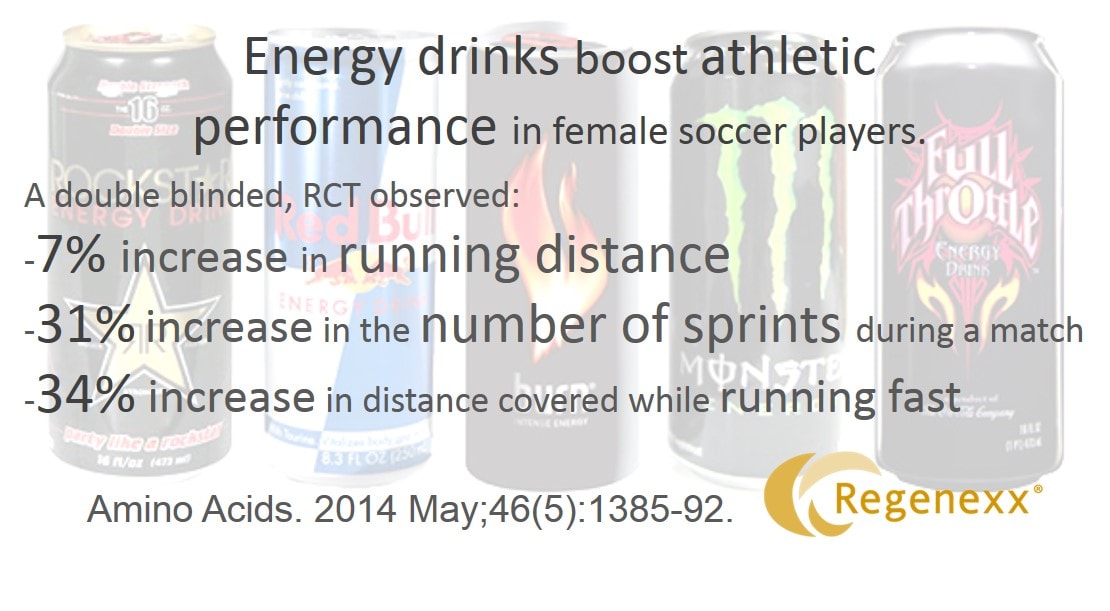Do Energy Drinks Improve Soccer Performance?

The research study looked at 18 women soccer players in various tests of physical performance and gave them an energy drink or a placebo. After 60 min, they performed jump (CMJ) and sprint tests as well as a simulated soccer match (2 × 40 min). While there were modest statistically significant improvements in the jump and sprint, there were substantial differences in the metrics during the simulated soccer match. This included about a 1/3 improvement in the number of sprints and the total distance while running fast (>18 km/hr or 11 mph). While it’s unknown if these performance gains would translate into more goals for the winning team or fewer for the defending one, it would seem like this could be a sizable competitive edge.
Since the main ingredient here is high dose caffeine, what other evidence exists that caffeine helps to improve athletic performance? One recent study did show that it improved reaction time and performance in martial arts. A different study also showed that energy drinks did improve sprint performance during rugby games. On the other hand, another study showed that a Red Bull drink made no difference in weight lifting performance. Finally, a recent study showed that similar drinks didn’t improve timed running results.
The upshot? Energy drinks have gotten a lot of bad press due to misuse by teens and kids. The Paris Hilton set using them to party through the night doesn’t help either. Having said that, if you look at the research, there does seem to be a trend that emerges. On the one hand these drinks don’t seem to be able to make you run much longer or lift heavier weights. However, as suspected, they do seem to improve reaction times and make you generally quicker. As a result, they could provide a competitive edge in sports where sprinting to the ball can make the difference in the outcome.

If you have questions or comments about this blog post, please email us at [email protected]
NOTE: This blog post provides general information to help the reader better understand regenerative medicine, musculoskeletal health, and related subjects. All content provided in this blog, website, or any linked materials, including text, graphics, images, patient profiles, outcomes, and information, are not intended and should not be considered or used as a substitute for medical advice, diagnosis, or treatment. Please always consult with a professional and certified healthcare provider to discuss if a treatment is right for you.
